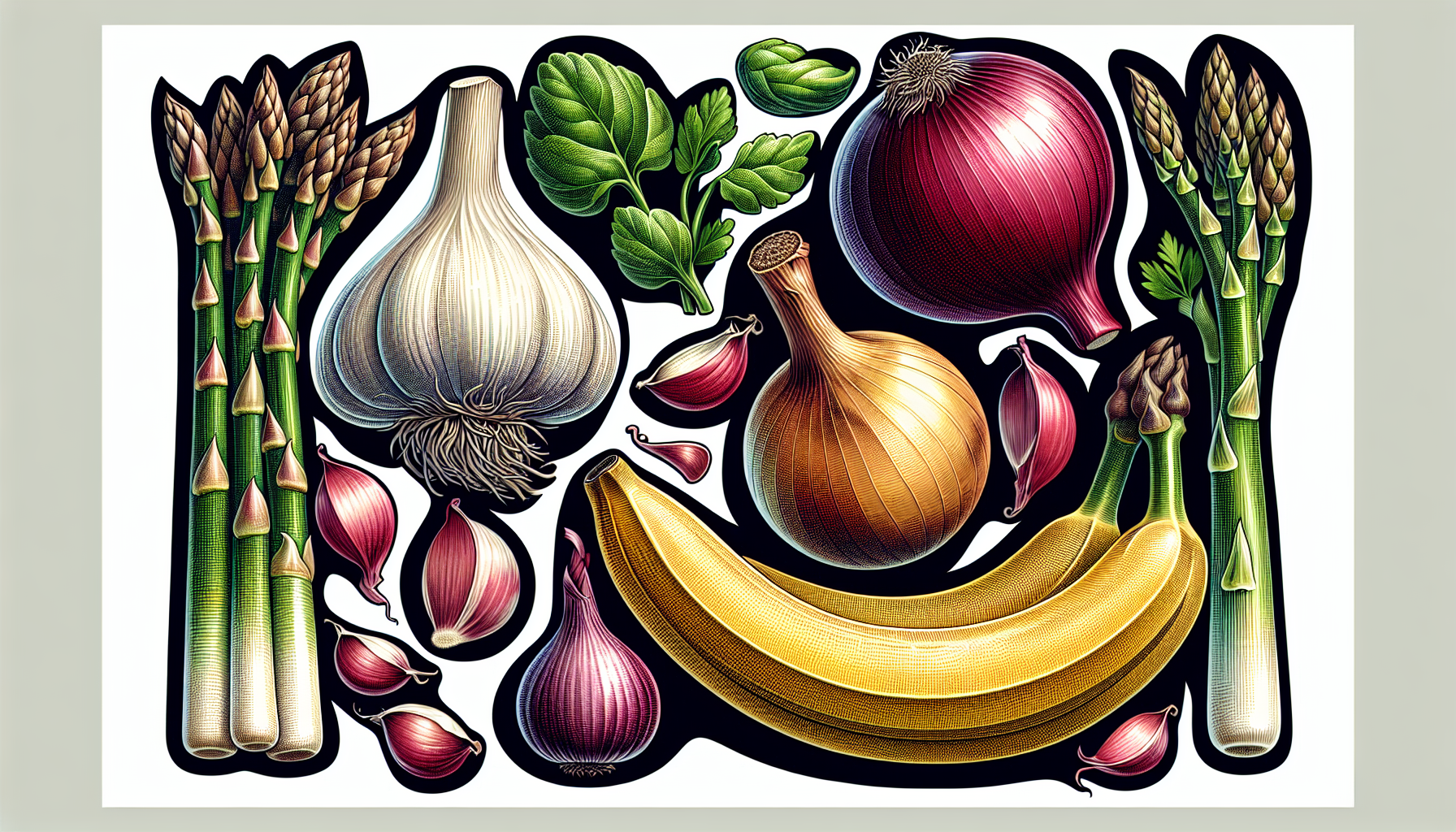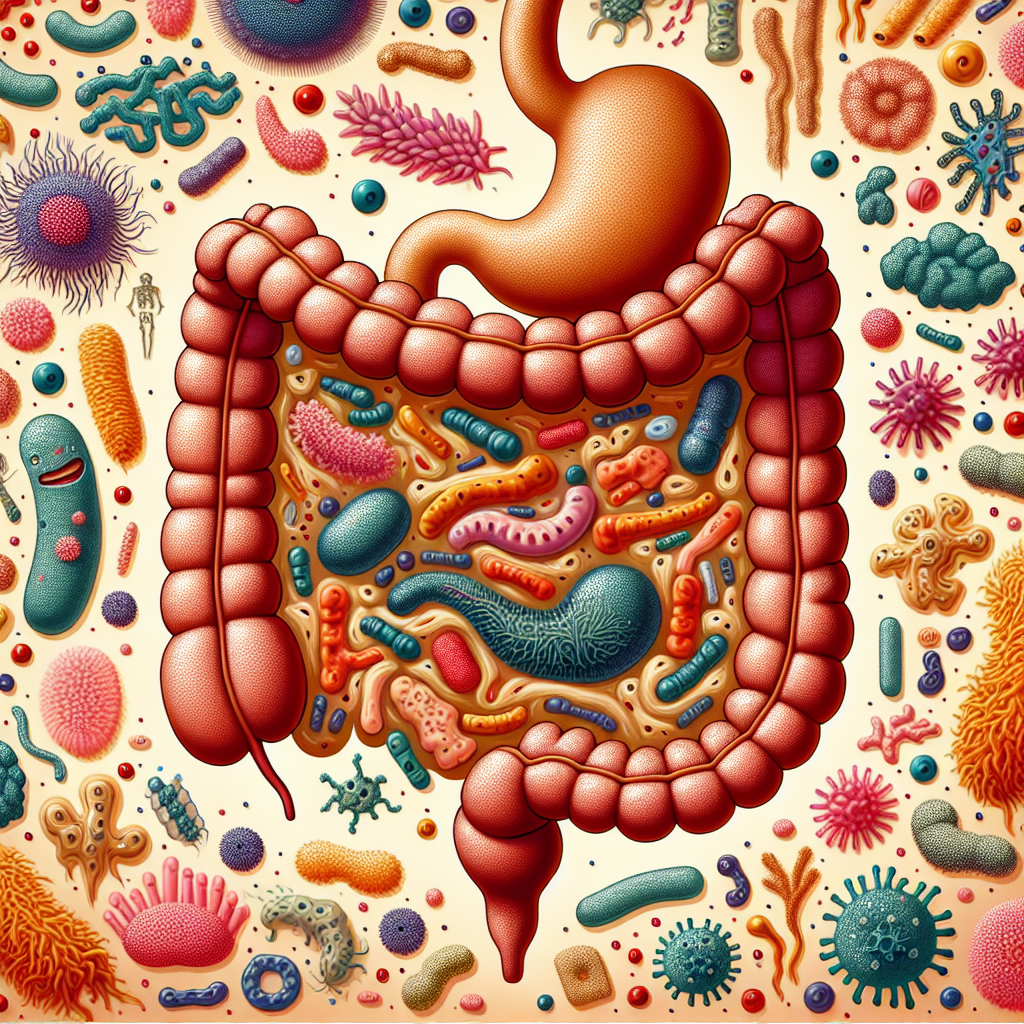In the intricate universe of our gut, a delicate balance exists that influences our overall health. Prebiotic foods, often overshadowed by their probiotic counterparts, play a pivotal role in nurturing this balance. This article delves into the crucial importance of prebiotic foods in maintaining and enhancing gut health, and, by extension, their influence on our general wellbeing.
The Role of Prebiotics in Digestive Wellness
Prebiotics are non-digestible fibers found in certain foods that stimulate the growth and activity of beneficial bacteria in the gut. These indigestible fibers act as fuel for our gut microbiota, helping them thrive and perform their functions effectively. The impact of soluble and insoluble fiber on digestive wellness is well-documented, and prebiotics are a crucial component of this dietary fiber.
The primary function of prebiotics in the gut is to promote the growth of beneficial bacteria, such as Lactobacilli and Bifidobacteria. These bacteria play a significant role in various aspects of health, including nutrient absorption, digestion, and immune function. Moreover, prebiotics help in the production of short-chain fatty acids (SCFAs) when fermented by gut bacteria, which have been shown to be beneficial for colon health and have systemic anti-inflammatory effects.
Prebiotic Foods and Chronic Inflammation
Chronic inflammation is a silent threat that has been linked to numerous diseases, including those affecting the gut. Prebiotic foods can play a role in combating this inflammation. By enhancing the growth of beneficial bacteria, prebiotics help in strengthening the gut barrier, thereby preventing the leakage of harmful substances that can trigger inflammation. This connection is further explored in the article on the role of chronic inflammation in gut diseases.
Incorporating prebiotic-rich foods into one’s diet is a natural strategy to address chronic inflammation. Foods like garlic, onions, leeks, asparagus, bananas, and chicory root are excellent sources of prebiotics. These foods not only promote a healthy gut microbiome but also contribute to the reduction of inflammation throughout the body.
Enhancing Gut Health with Dietary Choices
The foods we choose to consume can greatly influence our gut health. A diet rich in prebiotics supports a robust and diverse microbiome. This diversity is crucial for maximizing nutrient absorption for digestive wellness, as different bacteria play different roles in breaking down food components and synthesizing essential nutrients.
In addition to prebiotic foods, it’s important to consider the overall quality of one’s diet. Diets high in processed foods, sugar, and unhealthy fats can have a detrimental effect on gut bacteria, potentially leading to dysbiosis—an imbalance in the gut microbiota associated with various health issues. On the other hand, a diet emphasizing whole foods, fiber, and nutrient-dense options supports a healthy gut environment.
Prebiotics and Their Systemic Effects
The benefits of prebiotics extend beyond the gut. A healthy gut microbiome has been linked to improved mental health, better skin conditions, and a stronger immune system. For instance, the gut-brain axis is a well-established pathway through which gut health can influence mood and cognitive functions. For more on this, consider exploring how prebiotics and gut health affect brain health.
Identifying High-Quality Prebiotic Sources
When looking to incorporate prebiotics into your diet, it’s essential to identify high-quality sources. Whole foods are generally the best options. Supplements can also be useful, especially for those with dietary restrictions or specific health conditions. For guidance on supplements, refer to medication & supplements.
Here are some niche resources that offer deeper insights into the value of prebiotics:
- A comprehensive review on the science of prebiotics provides an in-depth look at their health benefits and mechanisms of action.
- An article on the gut-brain connection highlights the importance of gut health for mental well-being.
- Guidelines on dietary fiber and health outline the significance of prebiotic fibers in maintaining digestive health.
Practical Ways to Include Prebiotics in Your Diet
Incorporating prebiotic foods into your diet doesn’t have to be complicated. Here are some practical ways:
- Start your day with a prebiotic-rich breakfast, such as a banana or berries with yogurt.
- Add garlic and onions to your cooked dishes for a flavorful and gut-friendly boost.
- Snack on fiber-rich foods like apple slices or carrots.
- Include a diverse range of vegetables in your meals to get a variety of prebiotic fibers.
Conclusion
Prebiotic foods are a cornerstone of digestive wellness and overall health. By nurturing our gut microbiome, reducing inflammation, and supporting various body systems, prebiotics play a fundamental role that cannot be understated. Embracing a diet rich in these vital fibers is a step towards a healthier, more balanced life.
As we continue to understand the complex relationship between diet and health, the importance of prebiotics stands out as a clear and actionable path to wellness. Whether through whole foods or carefully chosen supplements, ensuring a steady intake of prebiotic fibers is a wise investment in your long-term health.



